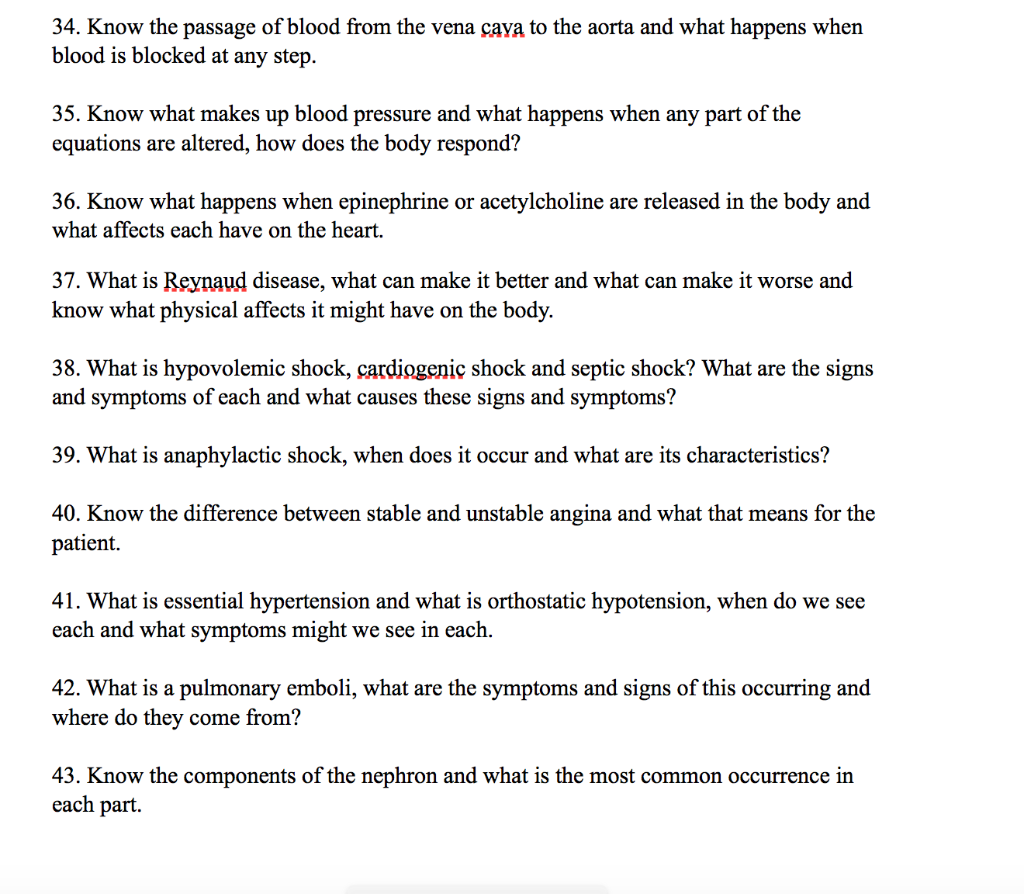Transcribed Image Text from this Question
34. Know the passage of blood from the vena cava to the aorta and what happens when blood is blocked at any step. 35. Know what makes up blood pressure and what happens when any part of the equations are altered, how does the body respond? 36. Know what happens when epinephrine or acetylcholine are released in the body and what affects each have on the heart. 37. What is Reynaud disease, what can make it better and what can make it worse and know what physical affects it might have on the body. 38. What is hypovolemic shock, cardiogenic shock and septic shock? What are the signs and symptoms of each and what causes these signs and symptoms? 39. What is anaphylactic shock, when does it occur and what are its characteristics? 40. Know the difference between stable and unstable angina and what that means for the patient. 41. What is essential hypertension and what is orthostatic hypotension, when do we see each and what symptoms might we see in each. 42. What is a pulmonary emboli, what are the symptoms and signs of this occurring and where do they come from? 43. Know the components of the nephron and what is the most common occurrence in each part.
(Visited 4 times, 1 visits today)

 Help me answer theseplease
Help me answer theseplease

